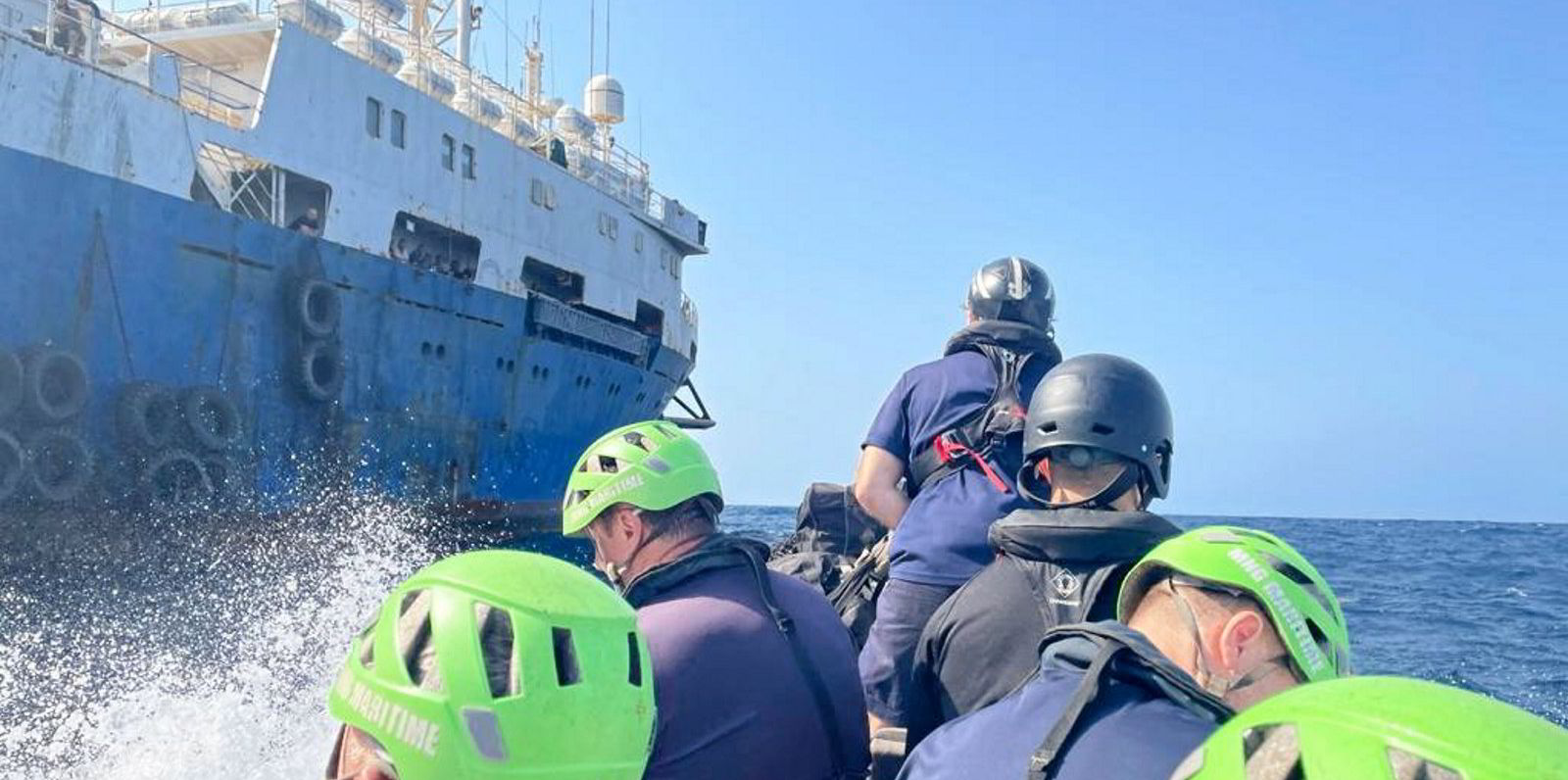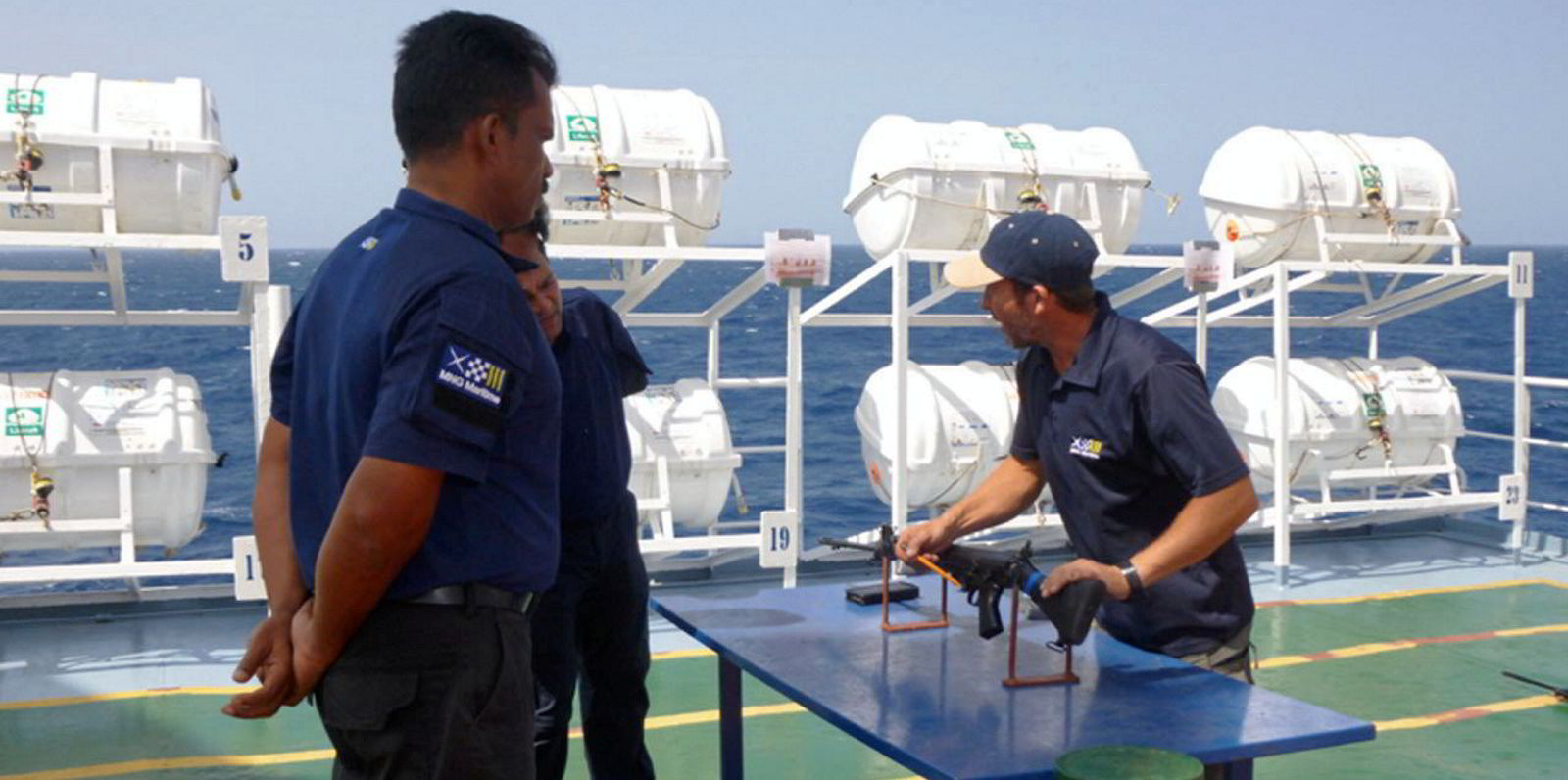The British government has extended a deadline for removing 3,000 weapons from three unlicensed floating armouries following a possible Russian sanctions breach after the industry warned that the plan was unworkable.
The UK said three vessels in the Indian Ocean chartered by MNG Maritime had to be cleared by 31 July, but the deadline passed without security companies removing their guns because of a lack of alternative storage options.
The only other floating armoury licensed by the UK in the region said it did not have enough space to stow weaponry from up to 35 security companies on its five vessels.
Following the warnings, the British government said it would give private security companies two more weeks to come up with a solution. The two organisations provide protection for ships in high-risk piracy areas.
But security officials warned that it would take at least two months before approval could be secured, a new ship chartered and weapons removed from MNG Maritime’s three ships. They include the 2,180-gt converted cruise ship Antarctic Dream (built 1959) and 3,135-gt former offshore support vessel Siam (built 1991).
John Thompson, a director of Ambrey, an alternative UK-licensed provider of floating armouries in the Indian Ocean, said: “The government has taken a particular position to enforce the supply of controlled goods, but there’s no real effective solution other than to destroy the equipment or safely remove it back to the UK, as far as I can see.”
MNG Maritime is believed to have lost its licences to operate after a non-UK security company that used its services allegedly provided security for a vessel linked to Sun Ship Management, the Dubai-based technical manager of the Russian Sovcomflot fleet. The company reported the breach to the UK government, which responded with the removal of licences they needed to operate.
Floating armouries proliferated with the rise of piracy off the coast of Somalia. Governments in the region were nervous about land-based stores holding hundreds of weapons, and the cost of port calls to obtain weapons was prohibitive.
But the reduction of Somalian piracy over the last decade has led to an oversupply of weaponry in the region. Last summer, a grouping of shipowner associations said it would end the Indian Ocean High Risk Area (HRA) designation as the threat of piracy attack was seen as negligible.
Thompson said the industry was lobbying the UK government to secure permission for a ship to collect the weaponry and safely bring them back to British territory.
“We know that, as with military operations, the drawdown is as difficult, if not more, than the build-up — look at Afghanistan,” he said.
“If we remove the supply of armed guards now, we will be encouraging Somali piracy to return again.”
MNG Maritime’s UK lawyer — Stephen Askins, of maritime solicitors Tatham & Co — warned last week that the current lack of storage capacity would push the weapons either to unlicensed facilities or to the bottom of the sea.




